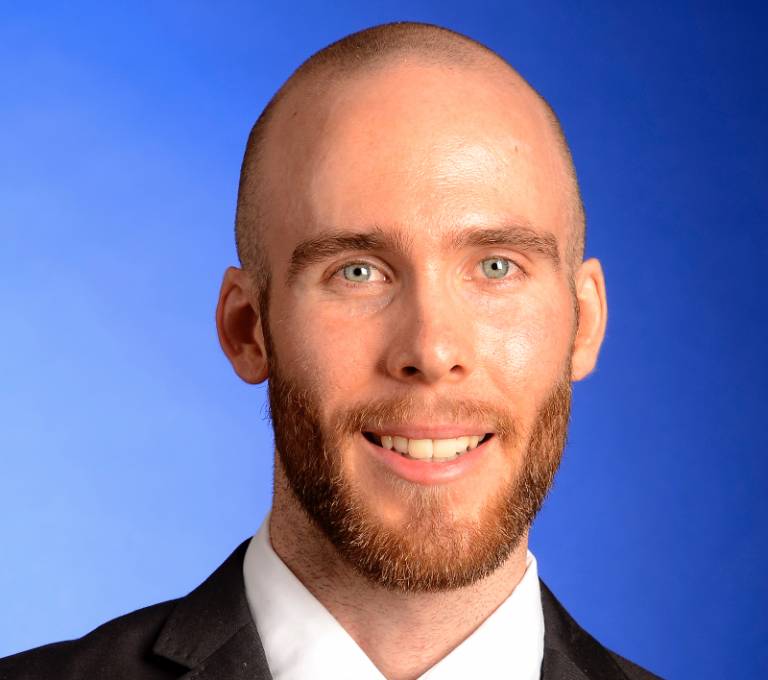Ryan Lamb

13 August 2018
Management Consultant, KMPG
Graduated from MSc Physics and Engineering in Medicine (Medical Image Computing) with Distinction in 2015.
I did my undergraduate degree in Physics in South Africa and shared some classes with students studying Medical Physics. I didn’t know much about it, so they introduced me to their head of department. We got talking, and I discovered that Medical Physics is a great mix, combining a highly technical discipline and real-world application that directly benefits society.
I trained and qualified as a Medical Physicist in South Africa and worked for a couple of years in public and private hospitals, mostly in radiotherapy but also in nuclear medicine and diagnostic radiology. When I decided I wanted to upskill in medical image computing, UCL was the obvious choice. It is one of the best universities in the world, has a fantastic location, and offers a specialism in Medical Image Computing. When I was fortunate enough to receive a scholarship to UCL, the opportunity was too good to pass up, so I handed in my resignation and went back to being a student again.
I loved studying in central London. It has a fantastic buzz, and there were almost as many countries represented in my class as there were students. I’m still very good friends with some of my former classmates. One is currently qualifying as a radiologist in Oxford and the other works for a radiotherapy start-up in Silicon Valley.
After graduating, I joined KPMG in their Management Consulting team, starting off in Bristol, and then transferring to the London office. I now work within their Government & Healthcare Analytics team, focusing primarily on using data analytics and business intelligence for data strategy, operational improvement and cost savings in healthcare. The skills I learned on the MSc – rigorous, logical thinking, how to structure a problem to reach the desired outcome, and how to frame complex answers in a coherent, accessible way – have been invaluable in consulting, where you are often dealing with a multitude of ambiguous problems on behalf of your clients.
Working for a global firm like KPMG is hugely rewarding. You’re always being pushed, always working on new projects, always stimulated and challenged. It’s good to know that between the experience I’m gaining in consulting and the skills I gained at UCL, I have a robust and well-rounded toolkit.
At every stage of my career, I’ve appreciated having mentors who guided and advised me, so I became involved involved in the UCL Alumni mentoring scheme as a way of giving back to students who may be in a similar position to the one I was in. I’ve met ambitious, interssting students who have been able to teach me new things as well, and it’s great to know hat I’ve been able to help someone make a well informed career decision.
The UCL Alumni community contains an extensive database of alumni who have gone on to achieve wonderful things across the world – the pure diversity of skillsets and experiences is invaluable and mentees should be able to find someone who has already had a career path similar to one they would like to follow. All they need to do is reach out
I plan on sticking around in consulting for the time being, and I’m keen to develop my career within the applied data analytics and innovative technology space helping to solve pressing social problems.
I would advise anyone considering studying Medical Physics to try and gain practical experience and a good understanding of real-world Medical Physics before and during your studies. Reach out to current medical physicists and ask to shadow them – you’ll have a clearer idea of which specialisation you’d prefer, and it will enhance both your time at UCL and your CV for when you graduate. Having practical experience before coming into the programme really helped me to contextualise and ground the coursework.
 Close
Close

